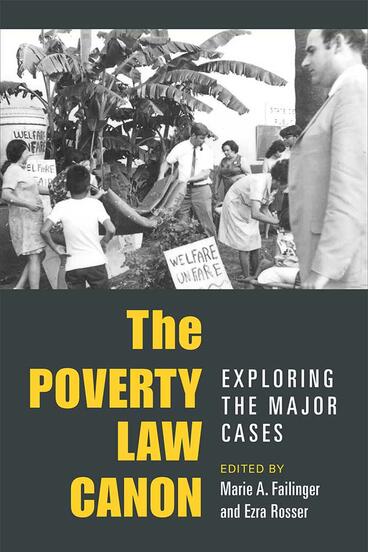Engaging narratives that move beyond the final opinions of the Supreme Court to reveal the people and stories behind key poverty-law cases of the last 50 years
Description
The Poverty Law Canon takes readers into the lives of the clients and lawyers who brought critical poverty law cases in the United States. These cases involved attempts to establish the right to basic necessities, as well as efforts to ensure dignified treatment of welfare recipients and to halt administrative attacks on federal program benefit levels. They also confronted government efforts to constrict access to justice, due process, and rights to counsel in child support and consumer cases, social welfare programs, and public housing. By exploring the personal narratives that gave rise to these lawsuits as well as the behind-the-scenes dynamics of the Supreme Court, the text locates these cases within the social dynamics that shaped the course of litigation.
Noted legal scholars explain the legal precedent created by each case and set the case within its historical and political context in a way that will assist students and advocates in poverty-related disciplines in their understanding of the implications of these cases for contemporary public policy decisions in poverty programs. Whether the focus is on the clients, on the lawyers, or on the justices, the stories in The Poverty Law Canon illuminate the central legal themes in federal poverty law of the late 20th century and the role that racial and economic stereotyping plays in shaping American law.
Marie A. Failinger is Professor of Law, Mitchell Hamline School of Law
Ezra Rosser is Professor of Law at the American University, Washington College of Law
Reviews
“The contributors include some of the best academics who write and teach about poverty. The back stories of these cases are multidimensionally interesting—the clients, the legal strategies, the lawyers themselves, the historical and political context, the effect on the law, the backstage of the Supreme Court and the role of the law clerks.”
—Peter Edelman, Georgetown University Law Center

